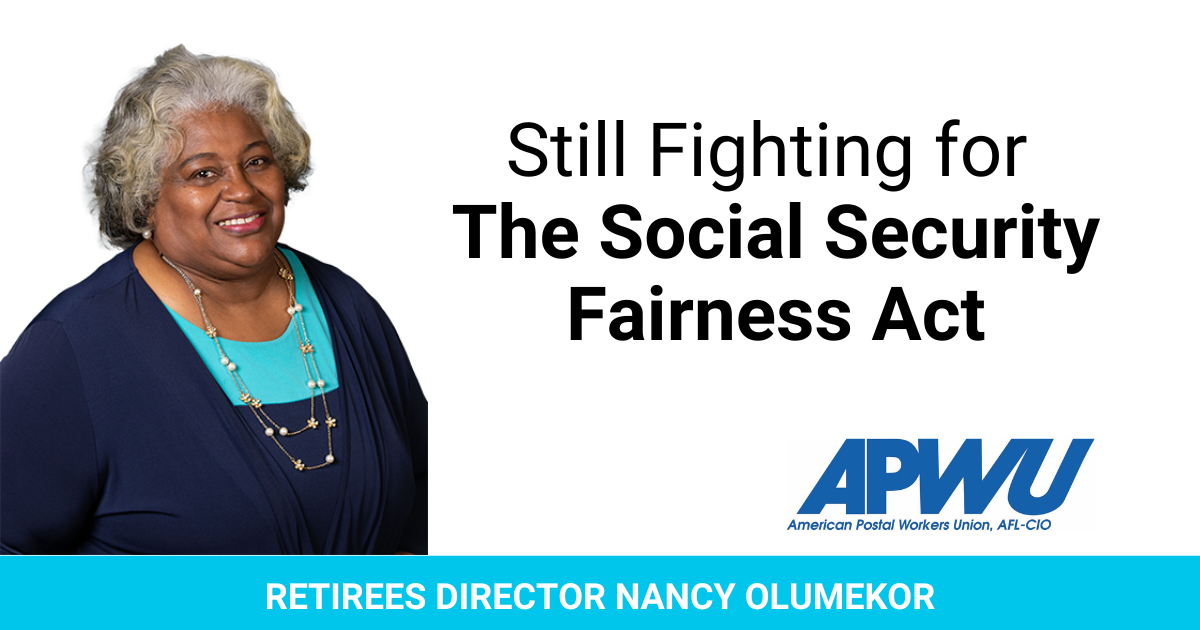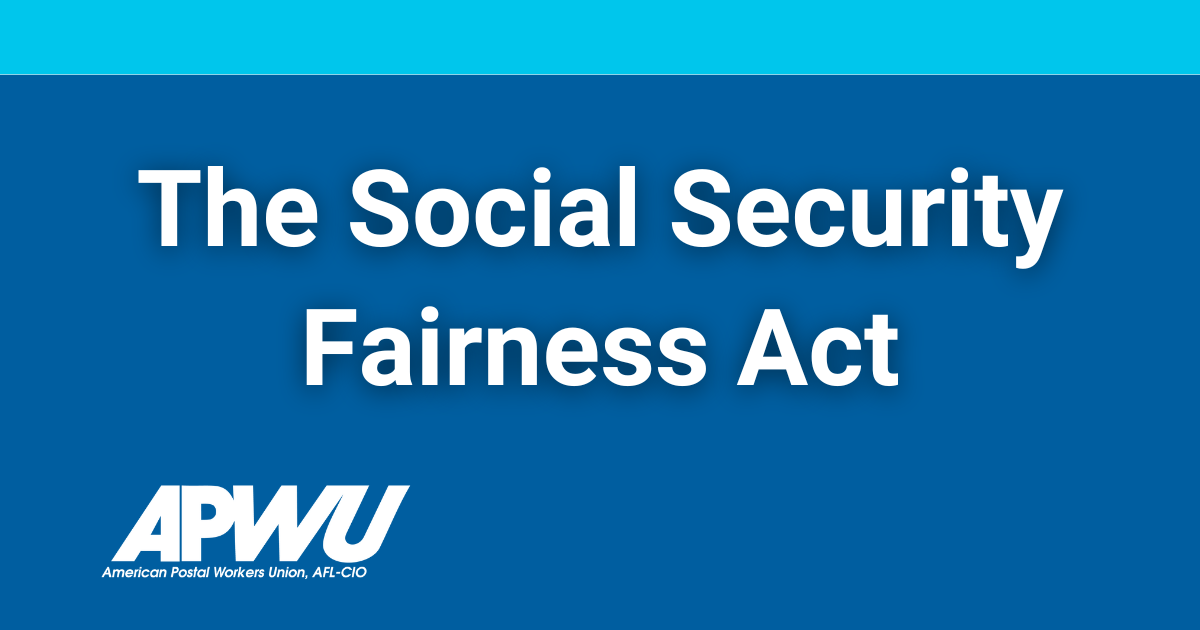CWA Statement Regarding Passage of the Social Security Fairness Act offers a comprehensive analysis of the legislation’s impact. The Communication Workers of America (CWA) details its official position, outlining key arguments, proposed solutions, and the potential effects on its members’ retirement security. This statement provides crucial insight into the economic and social implications of the Act, including a nuanced perspective on fairness and equity, and explores the legislative process and political context surrounding its passage.
The CWA’s involvement in the legislative process is meticulously documented, including a timeline of key events and a discussion of influencing political factors. Furthermore, the statement Artikels the union’s future actions and advocacy efforts, demonstrating a commitment to monitoring the Act’s implementation and continued engagement in Social Security reform. This detailed analysis offers a valuable resource for understanding the multifaceted implications of this significant legislation.
CWA’s Response to the Social Security Fairness Act: CWA Statement Regarding Passage Of The Social Security Fairness

The passage of the Social Security Fairness Act has prompted a formal response from the Communications Workers of America (CWA), outlining their position on the legislation’s impact on workers’ retirement security and broader societal implications. This statement details the CWA’s analysis, proposed solutions, and future advocacy efforts regarding the Act.
CWA’s Official Position on the Social Security Fairness Act

The CWA’s statement on the Social Security Fairness Act offers a comprehensive assessment of the legislation’s potential effects. Their analysis considers both the positive and negative aspects, focusing on the impact on their members and the broader implications for retirement security. The CWA’s key arguments center around the Act’s fairness, equity, and long-term sustainability. While acknowledging some positive aspects, the union expresses significant concerns regarding potential negative consequences for specific worker demographics.
Their proposed solutions include advocating for amendments and further legislative action to mitigate potential harm and ensure the long-term solvency of Social Security.
The CWA’s statement applauds the Social Security Fairness Act’s passage, highlighting its positive impact on numerous retirees. This victory for fair treatment contrasts sharply with the technological advancements showcased at events like the Drone Fair, where innovations such as the sonic drone home are presented. Ultimately, the CWA’s focus remains on securing financial security for its members, a goal significantly furthered by this legislative win.
Impact on Workers’ Retirement Security, CWA Statement Regarding Passage of the Social Security Fairness
The CWA views the Social Security Fairness Act as having a mixed impact on workers’ retirement security. While certain provisions might offer immediate benefits to some, the union expresses concern that these benefits might come at the expense of long-term sustainability and equity across different demographic groups. Compared to other labor unions, the CWA’s position reflects a nuanced perspective, acknowledging both the potential advantages and drawbacks of the Act.
For instance, the CWA highlights provisions that could disproportionately benefit higher-earning workers, potentially exacerbating existing inequalities in retirement security. The long-term implications, according to the CWA, are a cause for concern, potentially leading to reduced benefits for future retirees.
Economic and Social Implications of the Act
The CWA’s assessment extends beyond the immediate impact on their members to encompass broader economic and social consequences. The union anticipates potential unintended consequences, such as increased strain on the Social Security system and widening disparities in retirement income. The following table summarizes the projected effects on different demographic groups, according to the CWA’s analysis:
| Demographic Group | Projected Impact | CWA’s Stance | Supporting Evidence |
|---|---|---|---|
| Higher-income earners | Potentially increased benefits | Concerned about equity | Analysis of Act’s provisions affecting benefit calculations for higher earners. |
| Lower-income earners | Potentially minimal impact or negative impact | Advocating for protections | Data on current benefit levels and projected changes based on the Act. |
| Women | Potentially mixed impact, depending on career paths and earnings | Seeking gender-equitable outcomes | Research on gender disparities in Social Security benefits. |
| Minority groups | Potentially negative impact due to existing income disparities | Urging for equitable distribution | Statistical analysis of income and retirement security among minority groups. |
The CWA argues that the Act’s fairness and equity are questionable, citing potential disproportionate benefits for certain groups and potential long-term negative consequences for the overall system. Key arguments include concerns about increased system strain, widening income inequality in retirement, and the potential for reduced benefits for future retirees.
- The Act may exacerbate existing income inequalities in retirement.
- The long-term solvency of the Social Security system could be jeopardized.
- Certain provisions disproportionately benefit higher-income earners.
- The Act may not adequately address the needs of vulnerable populations.
Legislative Process and Political Context

The CWA actively participated in the legislative process surrounding the Social Security Fairness Act. Their involvement included lobbying efforts, public statements, and collaboration with other organizations. The following timeline highlights key events and CWA actions:
- Early Stages (2022): CWA conducts internal analysis of the proposed legislation.
- Mid-2023: CWA engages in lobbying efforts with legislators, expressing concerns and advocating for amendments.
- Late 2023: Public statement released by CWA outlining their official position.
- Passage of the Act (2024): CWA analyzes the final version of the legislation and begins planning for future advocacy efforts.
The CWA’s stance was influenced by a variety of political factors, including the broader political climate, the needs of their members, and their commitment to social and economic justice. Their statement reflects a strategic approach within the context of ongoing debates about Social Security reform.
Future Actions and Advocacy

Following the Act’s passage, the CWA plans to continue their advocacy efforts, focusing on monitoring the implementation of the Act, pushing for amendments to address concerns, and promoting broader Social Security reform. They intend to closely monitor the Act’s impact on their members and advocate for changes to ensure a more equitable and sustainable system. The CWA’s strategic approach can be visualized as a multi-pronged strategy: First, rigorous monitoring of the Act’s implementation and its effects on various demographic groups.
The CWA’s statement celebrating the Social Security Fairness Act’s passage highlights a significant victory for workers. However, the news cycle also features quite a different story; for instance, the ongoing controversy surrounding Blake Lively accuses It Ends With Us co-star Justin Baldoni of smear , which underscores how varied public attention can be. Ultimately, the CWA’s focus remains on securing better protections for its members.
Second, a proactive lobbying campaign aimed at securing amendments and addressing identified flaws. Third, collaboration with other labor unions and advocacy groups to promote broader reforms that enhance Social Security’s long-term viability and fairness. Fourth, a robust public awareness campaign to educate members and the public about the Act’s implications and the CWA’s ongoing advocacy efforts.
In conclusion, the CWA’s statement on the Social Security Fairness Act provides a thorough and insightful examination of the legislation’s impact. By outlining its official position, detailing potential consequences, and outlining future advocacy plans, the CWA offers a valuable contribution to the ongoing discussion surrounding Social Security reform. The union’s commitment to protecting its members’ retirement security and promoting fairness and equity within the system is clearly demonstrated throughout this comprehensive analysis.
Understanding the CWA’s perspective is essential for a complete understanding of the broader implications of the Act.
Essential FAQs
What specific concerns does the CWA have about the long-term solvency of Social Security under this Act?
The CWA’s statement likely addresses concerns about the Act’s long-term financial sustainability, possibly highlighting provisions that could strain the system’s resources or impact future benefit payouts. The specific concerns would need to be extracted from the full CWA statement.
How does the CWA’s position compare to that of AARP or other senior advocacy groups?
A comparison with AARP or other groups requires access to their statements on the Social Security Fairness Act. The CWA’s statement may explicitly contrast its position with others, or this comparison would need to be conducted independently.
What legislative actions is the CWA advocating for in the future regarding Social Security?
The CWA’s statement likely details its future advocacy plans, such as supporting or opposing specific amendments or further legislative action to improve or adjust the Social Security system. These details would be found within the statement itself.